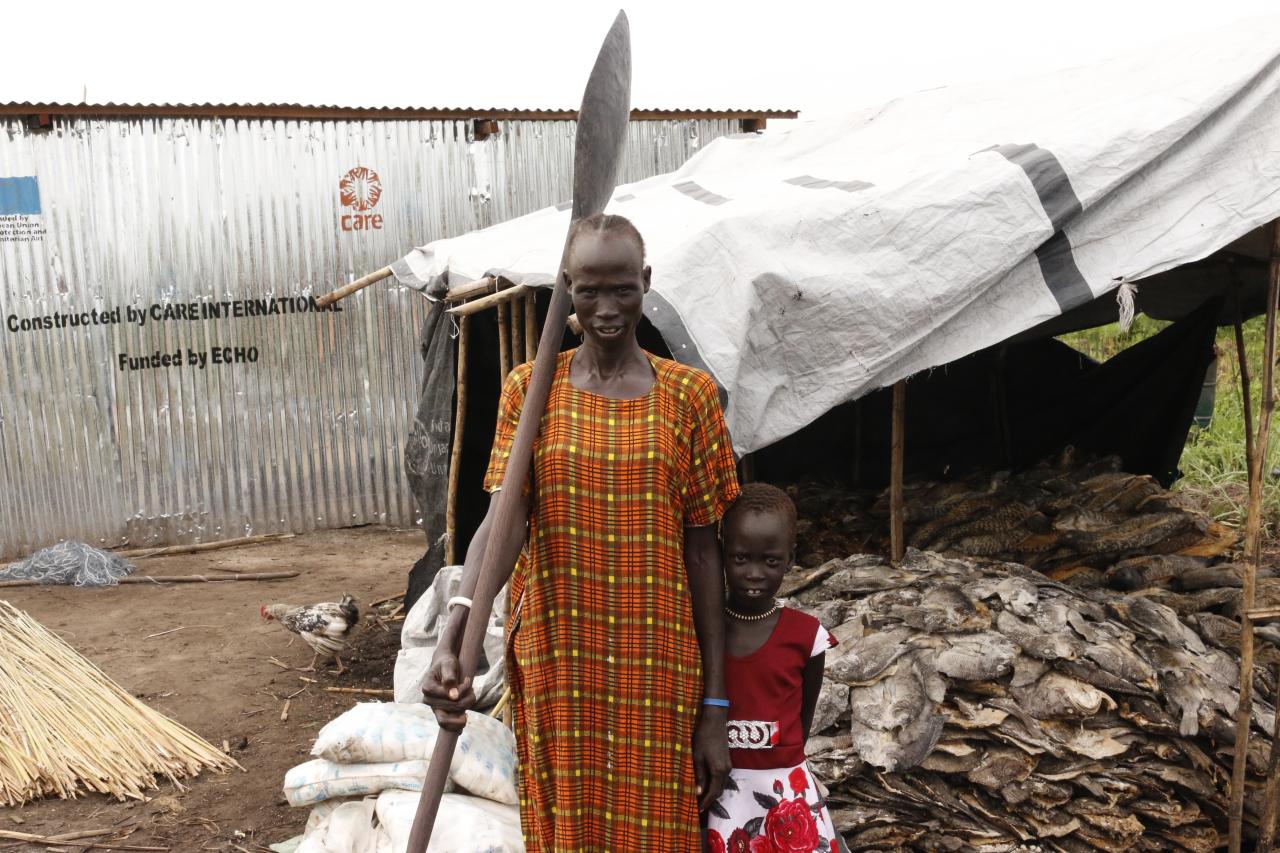NORTHAMPTON, MA / ACCESSWIRE / June 10, 2024 / Akoi Dau Pawol was born and raised in a cattle camp in South Sudan. There, she would participate in activities like milking cows, dancing, and wearing traditional Dinka clothing and cultural symbols that celebrated her heritage.
"I found great pleasure in caring for livestock, fishing, and dancing. We expressed ourselves through song and dance at the cattle camps and cultural events, in our traditional attire, jewelry, and beads. These beautiful accessories represent our rich heritage, individuality, and connections within the Dinka community," Akoi says.
Despite the fond memories of the past, Akoi, like many women in South Sudan, confronts a starkly different reality today. It's a life characterized by early marriage, limited education, and a lack of vital health care.
Want more stories like this?Sign up for the CARE News & Stories email newsletter to find out more about what's happening around the world through vibrant, engaging stories that put humanity at the center.
South Sudan, the world's youngest nation, has been embroiled in intermittent conflict since its inception.
Despite the signing of a peace agreement in 2018, localized conflicts continue to plague the nation, jeopardizing stability and exacerbating the dire humanitarian crisis.
According to the United Nations, nine million South Sudanese are in desperate need of help. They endure displacement and widespread violence. Because of the pre-existing cultural norms and discrimination in the region, the violence has an acute impact on Sudanese women and girls. South Sudan has one of the highest child mortality rates globally - one in every 10 children dies before their fifth birthday.
For Akoi, 35 years after her fondly-remembered childhood, her life has changed dramatically.
"Since losing my husband, the weight of caring for our seven children has fallen solely on me," she says. "Without access to proper healthcare facilities nearby, the challenges are even greater. When we are ill, we have to resort to home remedies or travel to Bor town, which can take at least a week by canoe."
Sporadic violence also impeded her access to essential resources and services.
One day, Akoi met a CARE staff running a community awareness campaign on health hygiene and feeding practices in the nearest village. She saw it as a potentially life-changing initiative.
The program is part of the Action initiative being carried out by a consortium headed by Action Against Hunger (ACF), the International Medical Corps (IMC), and CARE South Sudan. The group works across the various territories in the region, including Miaach in Majong, Ayethgak in Leek, Biothagany in Anyuak, and Wut Mawian in Pekuir Payams.
The initiative works to decrease mortality and morbidity rates for people suffering emergency levels of undernutrition and severe food insecurity by focusing on the most vulnerable, particularly the women who have been displaced by the constant flooding in the area.
"We were thrilled to witness CARE South Sudan's efforts in setting up a hospital, providing medical aid, and empowering women's organizations. These initiatives have made a tremendous difference."
Kuol Arop
Local chief of Wut Mawian
To bolster health services and reach remote areas, CARE South Sudan collaborated with the county health department to enhance the Boma Health Initiative (BHI) workforce.
Sixty BHIs were enlisted to address various health issues affecting children, including malaria, anemia, and malnutrition, while also conducting health education and awareness campaigns in the most isolated regions.
After the health care workers arrived, the program saw a 70 percent growth in access to life-saving nutrition and medical services, along with a 105 percent increase in support services for survivors of gender-based violence (GBV).
In Ayethagak, a patient receives vital care from CARE's mobile health facility, ensuring access to essential healthcare services in the Island.
In the Miaach region, a new primary health clinic was launched to provide health services for the community members and neighboring areas. The clinic treats between 400 to 500 patients every month. During the dry season, they receive women and children with cases of malaria, diarrhea, and typhoid, which are treatable in the clinic.
"Women now have the confidence to go for treatment and seek counseling on GBV issues," Dr. Chol Leek, the Twic East Health County Director, says. "They not only receive treatment but also psychosocial support for those with STIs, or STDs/HIV as they fear to discuss such conditions at home."
Additionally, the women have also formed groups to train in business and bookkeeping.
"I received financial support that has allowed me to thrive," Akoi says. "I have been able to start a fish business and transport my products to Bor town. Every month, I earn close to SSP 500,000 ($250). I can pay my children's school fees as well as take care of the added responsibilities I now have."
Akuel Chol, a 50-year-old community leader in Wut Mawian, joined one of the women's groups and learned new ways to help build her fishing business.
"My goal" Akuel says, "is to educate and empower more women."
The Action initiative, led by ACF, IMC, and CARE South Sudan and funded by the EU's ECHO through CARE Netherlands, aims to address undernutrition, food insecurity, and vulnerabilities in South Sudan. Implemented across regions, including Twic East's four islands, it reached 56,767 people with nutrition and health services. 17,037 vulnerable individuals received nutrition and health support, while another 17,037 benefited from improved primary health services. CARE's crisis response efforts reached 10,161 individuals swiftly and effectively.
Support families in needYou can help us combat food insecurity and build local resiliency in communities.

View additional multimedia and more ESG storytelling from CARE on 3blmedia.com.
Contact Info:
Spokesperson: CARE
Website: https://www.3blmedia.com/profiles/care
Email: [email protected]
SOURCE: CARE



